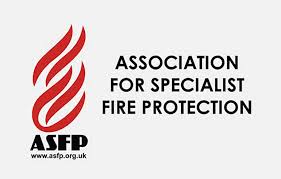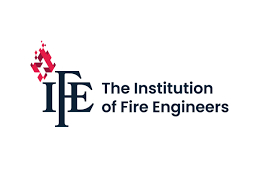Passive Fire Protection Qualifications in New Zealand
- Danilo Macedo
- Apr 9, 2024
- 3 min read
Updated: Jan 14
What Passive Fire Protection Qualifications are available in New Zealand?
Our inhouse passive fire expert, Danilo Macedo, offers the following advice:
One of the most common questions I get from people who are starting to deal with Passive Fire Protection is what training and qualifications are available in New Zealand. As someone who saw these qualifications from inside and out (as a learner and for a period as a Training Advisor in Competenz) so I decided to share some information here.
The reality is that passive fire protection is not a new area, but it has only recently started to be taken seriously in New Zealand. As a result, there are only 2 formal Passive Fire Protection qualifications available that are recognised by NZQA:
The Level 3 New Zealand Certificate in Passive Fire Protection Installation (75 credits) is recommended for Passive Fire Installers, and
the Level 4 New Zealand Certificate in Passive Fire Protection Systems (130-135 credits) is recommended for Team Leaders, Passive Fire Inspectors, and IQP's.
Both qualifications are provided by Competenz (as part of Te Pukenga) on an online platform (Canvas) that allows you to complete the assessment guides and watch presentations. Some practical assessments require hands-on work.
The official NZQA information on the qualifications can be found here:
How long does it take?
Competenz recommends a 12-month learning period for Level 3 and 18 months for a Level 4 qualification in Passive Fire Protection. However, it can be completed at your own pace. If you already have enough experience, you may finish in as little as a few months.
What do you need to enrol?
Usually, you need:
To be employed by a NZ company who's work is related to the qualification you want to obtain;
Your employer to enrol you (you cannot enrol yourself)
To have a verifier (registered with Competenz) who will verify your on-job work/assessment.
The on-job assessments require 3-5 work samples, which means that you must present work samples from 3-5 different projects you worked on. If you cannot fulfil this requirement along with your learning, you may not be able to complete your qualification.
Please note that Competenz may change these requirements at their discretion at any time. Always check their website for updated information.
What changes are coming?
I'm also privileged to have participated as an industry expert in developing the Level 3 qualification and am currently participating in updating the Level 4 qualification strands.
Recently the Level 4 qualification was separated into 2 strands:
Routine Compliance Inspections (focused on Team Leaders, and Passive Fire Inspectors, and
Construction Monitoring focused on IQPs
The reason for this was that although the base content is the same, the level of on-the-job work required on the assessments varies for each role.
IQPs are exposed to situations where the work is already completed, and the others are exposed to works still in construction. As a result, many learners could complete one assessment but not the other and were getting stuck on the last paper without completing the qualification.
With this change, IQPs are no longer required to present construction monitoring work or inspectors to present IQP reports. New assessments are being developed, and existing assessments are to be amended to complement the credits required to complete the qualification and improve the quality of the level of knowledge provided.
If you're exposed to both scenarios in your job, after finishing the first strand, you can still choose to enrol again and present only the missing assessment to complete the second strand.
What is the career pathway in Passive Fire Protection?
There is no additional career pathway in New Zealand for Passive Fire Protection, but if you're willing to progress your skills in Fire Protection, there are two options in New Zealand:
New Zealand Diploma in Engineering (Level 6) (Fire Engineering) provided by Open Polytechnic, OR if you hold a bachelor's degree, you may opt into
Post Graduate courses (Post-Grad Cert, Masters, PhD) in Fire Engineering at the University of Canterbury
Additional Passive Fire Qualifications overseas
The Institute of Fire Engineers (IFE), in conjunction with Association for Specialist Fire Protection (ASFP), also holds examinations in many Fire protection areas including two levels of certificate in Passive Fire Protection:
Our Training offerings
If you're looking for more basic and practical information or guidance, we also offer FREE Passive Fire Protection Training.
Nelligan Consulting Engineers has a great Fire Engineering team, including an in-house passive fire protection consultant team with expertise and knowledge to assist you with your project at various stages to ensure the installation is appropriately specified, compliant, cost-effective, and with minimal delays.










Comments